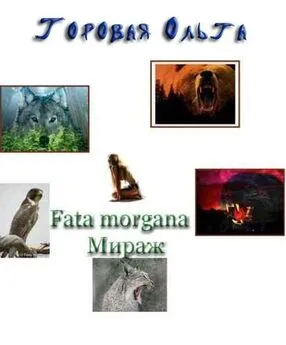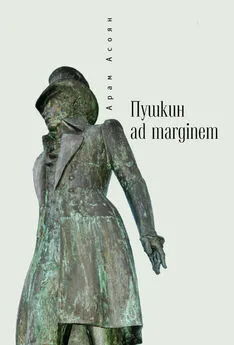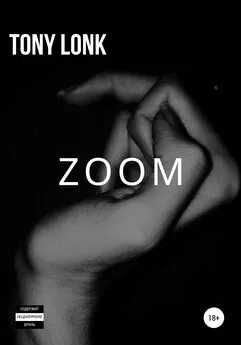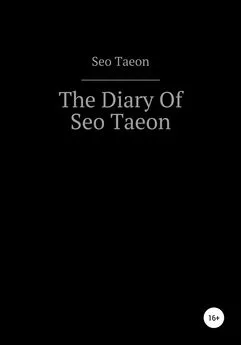Toni Morrison - Sula
- Название:Sula
- Автор:
- Жанр:
- Издательство:неизвестно
- Год:неизвестен
- ISBN:нет данных
- Рейтинг:
- Избранное:Добавить в избранное
-
Отзывы:
-
Ваша оценка:
Toni Morrison - Sula краткое содержание
Sula - читать онлайн бесплатно полную версию (весь текст целиком)
Интервал:
Закладка:
“We all know ’bout your linoleum. What we don’t know is…”
“OK. Let me tell it, will you? Just before the linoleum come I was out front and seed Shadrack carryin’ on as usual…up by the well…walkin’ ’round it salutin’ and carryin’ on. You know how he does…hollerin’ commands and…”
“Will you get on with it?”
“Who’s tellin’ this? Me or you?”
“You.”
“Well, let me tell it then. Like I say, he was just cuttin’ up as usual when Miss Sula Mae walks by on the other side of the road. And quick as that”—she snapped her fingers—“he stopped and cut on over ’cross the road, steppin’ over to her like a tall turkey in short corn. And guess what? He tips his hat.”
“Shadrack don’t wear no hat.”
“I know that but he tipped it anyway. You know what I mean. He acted like he had a hat and reached up for it and tipped it at her. Now you know Shadrack ain’t civil to nobody!”
“Sure ain’t.”
“Even when you buyin’ his fish he’s cussin’. If you ain’t got the right change he cussin’ you. If you act like a fish ain’t too fresh he snatch it out of your hand like he doin’ you the favor.”
“Well, everybody know he a reprobate.”
“Yeh, so how come he tip his hat to Sula? How come he don’t cuss her?”
“Two devils.”
“Exactly!”
“What’d she do when he tipped it? Smile and give him a curtsey?”
“No, and that was the other thing. It was the first time I see her look anything but hateful. Like she smellin’ you with her eyes and don’t like your soap. When he tipped his hat she put her hand on her throat for a minute and cut out. Went runnin’ on up the road to home. And him still standin’ there tippin’ away. And—this the point I was comin’ to—when I went back in the house a big sty come on my eye. And I ain’t never had no sty before. Never!”
“That’s ’cause you saw it.”
“Exactly.”
“Devil all right.”
“No two ways about it,” Dessie said, and she popped the rubber band off the deck of cards to settle them down for a nice long game of bid whist.
Their conviction of Sula’s evil changed them in accountable yet mysterious ways. Once the source of their personal misfortune was identified, they had leave to protect and love one another. They began to cherish their husbands and wives, protect their children, repair their homes and in general band together against the devil in their midst. In their world, aberrations were as much a part of nature as grace. It was not for them to expel or annihilate it. They would no more run Sula out of town than they would kill the robins that brought her back, for in their secret awareness of Him, He was not the God of three faces they sang about. They knew quite well that He had four, and that the fourth explained Sula. They had lived with various forms of evil all their days, and it wasn’t that they believed God would take care of them. It was rather that they knew God had a brother and that brother hadn’t spared God’s son, so why should he spare them?
There was no creature so ungodly as to make them destroy it. They could kill easily if provoked to anger, but not by design, which explained why they could not “mob kill” anyone. To do so was not only unnatural, it was undignified. The presence of evil was something to be first recognized, then dealt with, survived, outwitted, triumphed over.
Their evidence against Sula was contrived, but their conclusions about her were not. Sula was distinctly different. Eva’s arrogance and Hannah’s self-indulgence merged in her and, with a twist that was all her own imagination, she lived out her days exploring her own thoughts and emotions, giving them full rein, feeling no obligation to please anybody unless their pleasure pleased her. As willing to feel pain as to give pain, to feel pleasure as to give pleasure, hers was an experimental life—ever since her mother’s remarks sent her flying up those stairs, ever since her one major feeling of responsibility had been exorcised on the bank of a river with a closed place in the middle. The first experience taught her there was no other that you could count on; the second that there was no self to count on either. She had no center, no speck around which to grow. In the midst of a pleasant conversation with someone she might say, “Why do you chew with your mouth open?” not because the answer interested her but because she wanted to see the person’s face change rapidly. She was completely free of ambition, with no affection for money, property or things, no greed, no desire to command attention or compliments—no ego. For that reason she felt no compulsion to verify herself—be consistent with herself.
She had clung to Nel as the closest thing to both an other and a self, only to discover that she and Nel were not one and the same thing. She had no thought at all of causing Nel pain when she bedded down with Jude. They had always shared the affection of other people: compared how a boy kissed, what line he used with one and then the other. Marriage, apparently, had changed all that, but having had no intimate knowledge of marriage, having lived in a house with women who thought all men available, and selected from among them with a care only for their tastes, she was ill prepared for the possessiveness of the one person she felt close to. She knew well enough what other women said and felt, or said they felt. But she and Nel had always seen through them. They both knew that those women were not jealous of other women; that they were only afraid of losing their jobs. Afraid their husbands would discover that no uniqueness lay between their legs.
Nel was the one person who had wanted nothing from her, who had accepted all aspects of her. Now she wanted everything, and all because of that. Nel was the first person who had been real to her, whose name she knew, who had seen as she had the slant of life that made it possible to stretch it to its limits. Now Nel was one of them. One of the spiders whose only thought was the next rung of the web, who dangled in dark dry places suspended by their own spittle, more terrified of the free fall than the snake’s breath below. Their eyes so intent on the wayward stranger who trips into their net, they were blind to the cobalt on their own backs, the moonshine fighting to pierce their corners. If they were touched by the snake’s breath, however fatal, they were merely victims and knew how to behave in that role (just as Nel knew how to behave as the wronged wife). But the free fall, oh no, that required—demanded—invention: a thing to do with the wings, a way of holding the legs and most of all a full surrender to the downward flight if they wished to taste their tongues or stay alive. But alive was what they, and now Nel, did not want to be. Too dangerous. Now Nel belonged to the town and all of its ways. She had given herself over to them, and the flick of their tongues would drive her back into her little dry corner where she would cling to her spittle high above the breath of the snake and the fall.
It had surprised her a little and saddened her a good deal when Nel behaved the way the others would have. Nel was one of the reasons she had drifted back to Medallion, that and the boredom she found in Nashville, Detroit, New Orleans, New York, Philadelphia, Macon and San Diego. All those cities held the same people, working the same mouths, sweating the same sweat. The men who took her to one or another of those places had merged into one large personality: the same language of love, the same entertainments of love, the same cooling of love. Whenever she introduced her private thoughts into their rubbings or goings, they hooded their eyes. They taught her nothing but love tricks, shared nothing but worry, gave nothing but money. She had been looking all along for a friend, and it took her a while to discover that a lover was not a comrade and could never be—for a woman. And that no one would ever be that version of herself which she sought to reach out to and touch with an ungloved hand. There was only her own mood and whim, and if that was all there was, she decided to turn the naked hand toward it, discover it and let others become as intimate with their own selves as she was.
In a way, her strangeness, her naïveté, her craving for the other half of her equation was the consequence of an idle imagination. Had she paints, or clay, or knew the discipline of the dance, or strings; had she anything to engage her tremendous curiosity and her gift for metaphor, she might have exchanged the restlessness and preoccupation with whim for an activity that provided her with all she yearned for. And like any artist with no art form, she became dangerous.
She had lied only once in her life—to Nel about the reason for putting Eva out, and she could lie to her only because she cared about her. When she had come back home, social conversation was impossible for her because she could not lie. She could not say to those old acquaintances, “Hey, girl, you looking good,” when she saw how the years had dusted their bronze with ash, the eyes that had once opened wide to the moon bent into grimy sickles of concern. The narrower their lives, the wider their hips. Those with husbands had folded themselves into starched coffins, their sides bursting with other people’s skinned dreams and bony regrets. Those without men were like sour-tipped needles featuring one constant empty eye. Those with men had had the sweetness sucked from their breath by ovens and steam kettles. Their children were like distant but exposed wounds whose aches were no less intimate because separate from their flesh. They had looked at the world and back at their children, back at the world and back again at their children, and Sula knew that one clear young eye was all that kept the knife away from the throat’s curve.
She was pariah, then, and knew it. Knew that they despised her and believed that they framed their hatred as disgust for the easy way she lay with men. Which was true. She went to bed with men as frequently as she could. It was the only place where she could find what she was looking for: misery and the ability to feel deep sorrow. She had not always been aware that it was sadness that she yearned for. Lovemaking seemed to her, at first, the creation of a special kind of joy. She thought she liked the sootiness of sex and its comedy; she laughed a great deal during the raucous beginnings, and rejected those lovers who regarded sex as healthy or beautiful. Sexual aesthetics bored her. Although she did not regard sex as ugly (ugliness was boring also), she liked to think of it as wicked. But as her experiences multiplied she realized that not only was it not wicked, it was not necessary for her to conjure up the idea of wickedness in order to participate fully. During the lovemaking she found and needed to find the cutting edge. When she left off cooperating with her body and began to assert herself in the act, particles of strength gathered in her like steel shavings drawn to a spacious magnetic center, forming a tight cluster that nothing, it seemed, could break. And there was utmost irony and outrage in lying under someone, in a position of surrender, feeling her own abiding strength and limitless power. But the cluster did break, fall apart, and in her panic to hold it together she leaped from the edge into soundlessness and went down howling, howling in a stinging awareness of the endings of things: an eye of sorrow in the midst of all that hurricane rage of joy. There, in the center of that silence was not eternity but the death of time and a loneliness so profound the word itself had no meaning. For loneliness assumed the absence of other people, and the solitude she found in that desperate terrain had never admitted the possibility of other people. She wept then. Tears for the deaths of the littlest things: the castaway shoes of children; broken stems of marsh grass battered and drowned by the sea; prom photographs of dead women she never knew; wedding rings in pawnshop windows; the tidy bodies of Cornish hens in a nest of rice.
Читать дальшеИнтервал:
Закладка:








